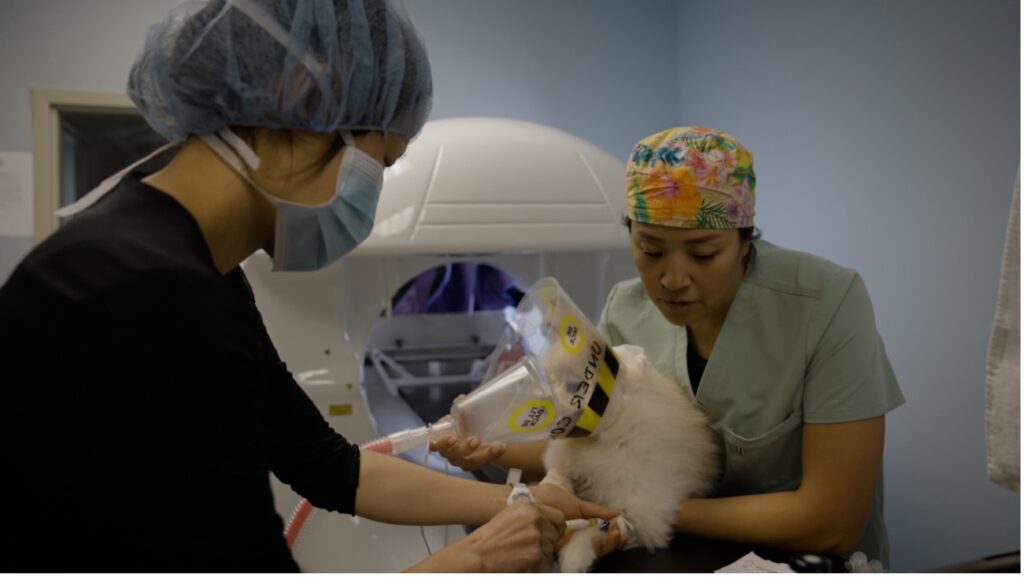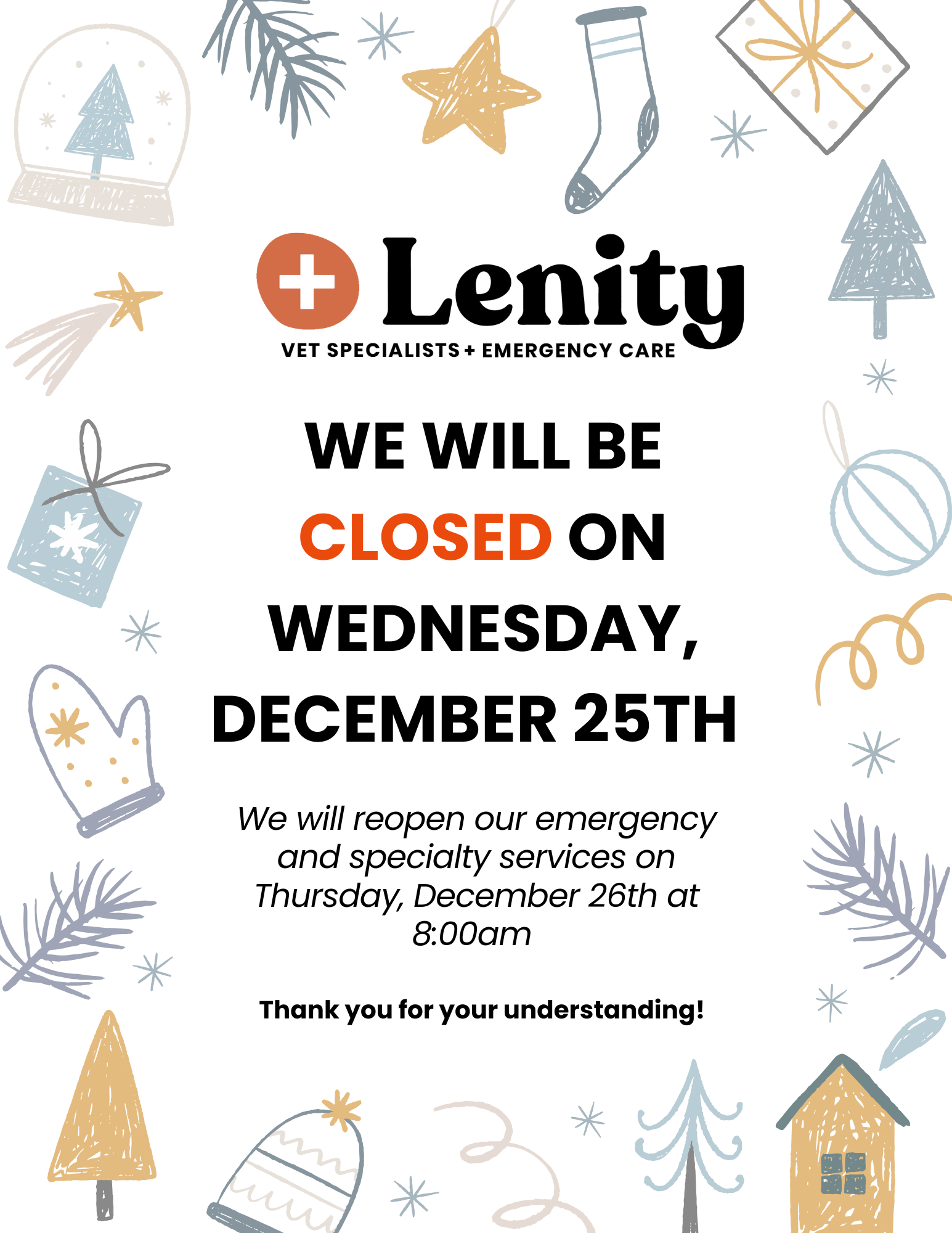A pet emergency can happen at any time of day, so pet parents of the San Francisco Bay Area need to be prepared to handle anything from cuts and minor bleeding to more severe injuries. Knowing basic first aid can make all the difference in keeping your furry friend safe and healthy. This guide to pet first aid will provide you with know-how to take care of immediate pet first aid. I’ll also be sharing a complete picture of Lenity’s emergency pet care services.
Know the Signs of Common Pet Emergencies
Pet owners need to recognize the signs of common pet emergencies. These can include choking, heat stroke, poisoning, and seizures. Knowing what to look for and how to respond can help you provide your pet with the necessary care and potentially save its life.
Be sure to familiarize yourself with these signs of common pet emergencies and have a plan for handling them.
- Wounds and trauma
- Difficulty breathing
- Vomiting and diarrhea
- No longer drinking water or eating.
- Fever
- Toxicities
- Seizures
- Signs of pain or anxiety
- Problems eliminating (unable to pass feces or urinate)
- Eye injuries
Keep Your Pet First Aid Kit Supplied with Necessities
One of the essential steps in preparing for a pet emergency is having a well-stocked first aid kit. If you do not have a pet first aid kit, we urge you to make it a priority and put your kit together now – or soon, while we’re on the subject (and you’re reading this).
Here are the items recommended by the AVMA for a pet first aid kit:
- IMPORTANT PHONE NUMBERS (veterinarian, emergency clinic, poison control, animal control, non-emergency police)
- A copy of your PET’S MEDICAL RECORD
- DIGITAL FEVER THERMOMETER to take your pet’s temperature.
- MUZZLE to prevent bites (DO NOT muzzle your pet if he/she is vomiting).
- SPARE LEASH AND COLLAR
- GAUZE ROLL for wrapping wounds or muzzling an injured animal.
- CLEAN TOWELS for restraining cats, cleaning, or padding
- NONSTICK BANDAGES OR STRIPS OF CLEAN CLOTH to control bleeding or protect wounds.
- SELF-ADHERING, NONSTICK TAPE for bandages
- ADHESIVE TAPE for securing bandages.
- EYE DROPPER (or large syringe without needle) to give oral treatments or flush wounds
- K-Y JELLY (or generic version) to protect wounds, eyes.
- MILK OF MAGNESIA OR ACTIVATED CHARCOAL to absorb poison (Use only if instructed to do so by your veterinarian or a poison control center)
- 3% HYDROGEN PEROXIDE to induce vomiting (Always contact your veterinarian or poison control center before inducing vomiting; do not use hydrogen peroxide on wounds.)
- SALINE SOLUTION for cleansing wounds (Saline sold for use with contact lenses works well for most purposes.)
- LOCATION OF PET CARRIER (for cats and small dogs.
Keep your kit in an easily accessible location and ensure all family members know where it is and how to use its contents.
Emergency Care Phone Numbers
Even when you know basic first aid techniques, there are some situations where you should seek professional help. If your pet is experiencing severe bleeding, difficulty breathing, seizures, choking, or unconsciousness, it’s vital to call Lenity immediately at 650-513-6660.
If you know or suspect your pet has ingested a poison, contact ASPCA Poison Control at 800-426-4435. They have a database of known toxins, their effects, and how to treat your pet. They will also liaise with our doctors for any treatment protocols.
*Important Note: Keep our office number, your family veterinarian’s number, and the ASPCA Poison Control number where you, any family member, or a pet sitter can quickly find them and call in an emergency. If an emergency arises, you want fast access to those numbers and do not want to be scrambling to find them.
Emergency Care at Lenity

Lenity Vet Specialists’ veterinary staff provide the highest quality emergency care. We have state-of-the-art technology, including an in-house laboratory, digital radiography, CT, ultrasound, and Intensive Care Units to help us diagnose and treat your pet as quickly as possible. Our emergency doctors and specialists work closely with your family veterinarian to continue to provide the best care for your pet.
When your pet has an accident or sudden illness, Lenity Vet Specialists’ veterinary staff provide the highest quality emergency care. Our emergency doctors and specialists work closely with your family veterinarian to continue to provide the best care for your pet.
Basic first-aid Techniques for Pets
Knowing basic first aid techniques for pets can be the difference between life and death in an emergency. Some standard methods include CPR, controlling bleeding and treating burns or wounds. It’s essential to familiarize yourself with these techniques and practice them before an emergency occurs. Consider taking a pet first aid class. Remember, in any trouble, it’s essential to stay calm and act quickly to ensure the safety and well-being of your furry friend.
The AVMA provides some quick links for various pet emergencies. You can use these links to get familiar with each type of emergency and handling so you can act quickly.
QUICK LINKS
Poisoning and exposure to toxins
Seizures
Fractures
Bleeding (external)
Bleeding (internal)
Burns
Choking
Heatstroke
Shock
Pet is not breathing
Pet has no heartbeat
Preventing Pet Emergencies
While accidents can happen, there are steps you can take to prevent emergencies from occurring in the first place. Ensure your pet is current on vaccinations and preventative medications, such as flea and tick prevention. Keep your home and yard free of potential hazards, such as toxic plants, sharp objects, and small objects your pet could swallow. Please supervise your pets outside and keep them on a leash or in a secure area to prevent them from running into traffic or getting lost. Taking these preventative measures can help keep your pet safe and healthy.
Being Prepared: Navigating Pet Emergencies with Confidence
Pet emergencies can happen when you least expect them, especially when you wake up in the middle of the night to an emergency. So, the more prepared you are, the better you can calmly handle a crisis. But it is also critical to contact us or poison control (in case your pet consumes a toxic substance) so your pet can get professional care. Lenity’s facility has expert surgeons and technicians to deal with pet emergencies.
Dr. Kim Carlson and the Lenity Vet Team

